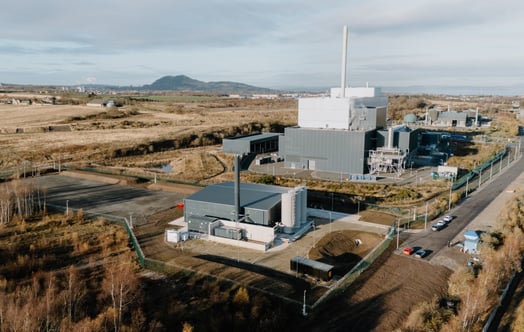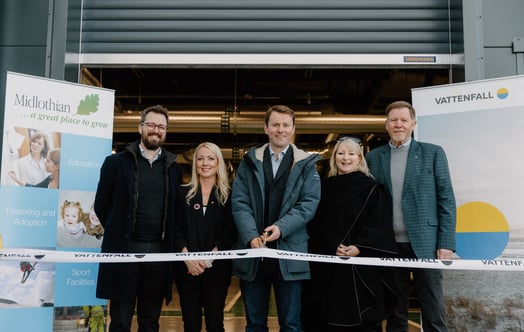We have all seen the deeply concerning impacts of climate change this summer, with record breaking heatwaves and wildfires in Europe. Young people face the prospect of feeling the damaging effects of climate change deeply throughout their lives. Yet at the same time, as they get ready for the world of work, they have a vital role to play in minimising those impacts.
That’s why the theme of this year’s International Youth Day, on 12th August, is so significant; focused on developing skills that can ensure a more sustainable planet, it is a critical moment to catalyse faster action.
It’s no secret that the UK faces an urgent skills shortage. As LinkedIn’s most recent Global Green Skills report shows, the gap between supply and demand is widening, with just one in eight British workers possessing the skills needed to facilitate a low carbon transition. Meanwhile, research from the National Grid shows we’ll need to create and fill 400,000 green jobs in order to reach 2050 targets.
This shortfall is becoming increasingly apparent in low carbon industries, with alarms regularly raised over the lack of technicians qualified to manage the heat, solar and wind technologies that will be essential in decarbonising homes and businesses.
But at the same time, there is a clear appetite from young people to work in roles that tackle climate change. A report from World Skills UK shows that four out of five young people surveyed said it was very or quite important that they work for an organisation that is committed to tackling the climate crisis. Nearly two thirds (61%) of young people also wanted to work in a role directly committed to tackling climate change, while 55% felt inspired to develop green skills and pursue a green career.
Jobs in exciting low carbon industries need to be filled and young people want to fill them – so what’s the disconnect? As the World Skills UK report suggests, there’s a lack of knowledge and understanding among young people regarding the skills they need and the opportunities available to them – and there is certainly no shortage of opportunities.
Take heating, for example. The government’s impending 2035 ban on installing new fossil gas boilers means another answer is needed for the replacement of around 26 million gas boilers which produce 92 million tonnes of CO2 each year.
There’s a mix of technologies available today which need to scale up fast to address this, challenge, including district heating. Focussed in dense urban areas, district heating taps into the enormous amount of waste heat generated in the UK to meet this need without fossil fuels. Heat is captured and transported via a network of insulated underground water pipes, to supply buildings with heating and hot water. The potential to scale up district heating in UK cities is huge, with half of all UK buildings in areas suitable for a district heating network.
Such is the technology’s proven efficiency and viability that the UK Government is stimulating the sector through its Heat Network Transformation Programme to support the deployment of district heating networks. The aim is to supply a fifth of heat demand by 2050.
At Vattenfall, we’re already building and running district heating networks in three major UK cities: London, Bristol, and Midlothian, South of Edinburgh, – we’ve invested millions so far, and will expand these networks to thousands of homes. The heating sector in the UK accounts for a third of the UK’s annual carbon footprint, so this ambition represents massive opportunity for young people that want to make a tangible difference to the climate crisis.
It's essential, then, that efforts to engage, train and empower young people form a key part of the UK’s wider decarbonisation strategy; and industry has a critical role to play identifying, educating and raising the awareness of the urgent needs for future career paths for young people.
At Vattenfall, we’re committed to nurturing the next generation of talent. We run an International Trainee Programme, for which we’re constantly searching for people who can bring new perspectives and challenge the way we think. The one-year program includes international assignments, allowing trainees to gain valuable experience in real world Vattenfall teams, facing and solving challenges with a fresh perspective.
We’re proud of our international program, and we benefit from the bright minds contributing to our work. It’s only by investing in such opportunities that we can contribute to the energy transition. We recognise the shortage of skills in the workforce, and the growing gap as we move into a future where we need these skills to help us grow, but we have a critical need to ensure we bring the brightest and best with us in our collective fight for fossil freedom.
Another example of change in this space is the Diverse Heat Network (DHN). We are a founding member of the DHN which bring together heat network industry leaders committed to creating a sector that attracts and retains a diverse workforce that is representative of society, and also addresses skills gaps across the industry.
One of the first things the DHN did after forming was to create a series of videos roles in the sector, which were aimed at school children and accompanied by a specific lesson plan created by teachers. To secure the future of our industry, and more poignantly securing a sustainable world for those future generations, we need to continue and increase this commitment to nurturing the talent of the future.
Work experience placements, apprenticeships, year-in-industry programmes and graduate training schemes provide critical entry points for young people. Engaging even younger children – through classroom activities and visits to educational centres – can help to get them excited and clued up about careers in low carbon sectors at an earlier age.
The UK is not on track to reach its legally binding target of net zero carbon emissions by 2050. Engaging young people in skills for a climate positive future and supporting them in their career choices – choices that they are eager to make – can get us back on track to decarbonising homes and businesses for generations to come.




